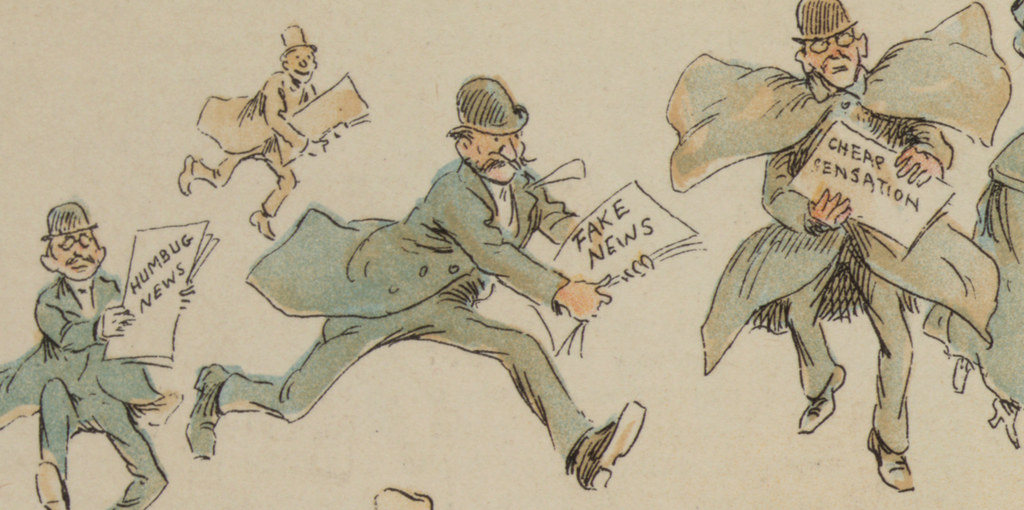Fake news | Journalism | Alternate facts |Tabloids
 | ||
| Detail from The Fin de Siècle Newspaper Proprietor, an illustration featured in an 1894 issue of Puck magazine. Amid the flurry of eager paper-clutching public, one holds a publication brandished with the words “Fake News”. See full image below — Source. |
Although these days his name is somewhat synonymous with journalism of the highest standards, through association with the Pulitzer Prize established by provisions in his will, Joseph Pulitzer had a very different reputation while alive. After purchasing The New York World in 1884 and rapidly increasing circulation through the publication of sensationalist stories he earned the dubious honour of being the pioneer of tabloid journalism. He soon had a competitor in the field when his rival William Randolph Hearst acquired the The New York Journal in 1885 (originally begun by Joseph’s brother Albert). The rivalry was fierce, each trying to out do each other with ever more sensational and salacious stories. At a meeting of prominent journalists in 1889 Florida Daily Citizen editor Lorettus Metcalf claimed that due to their competition “the evil grew until publishers all over the country began to think that perhaps at heart the public might really prefer vulgarity”. Read more...
No comments:
Post a Comment